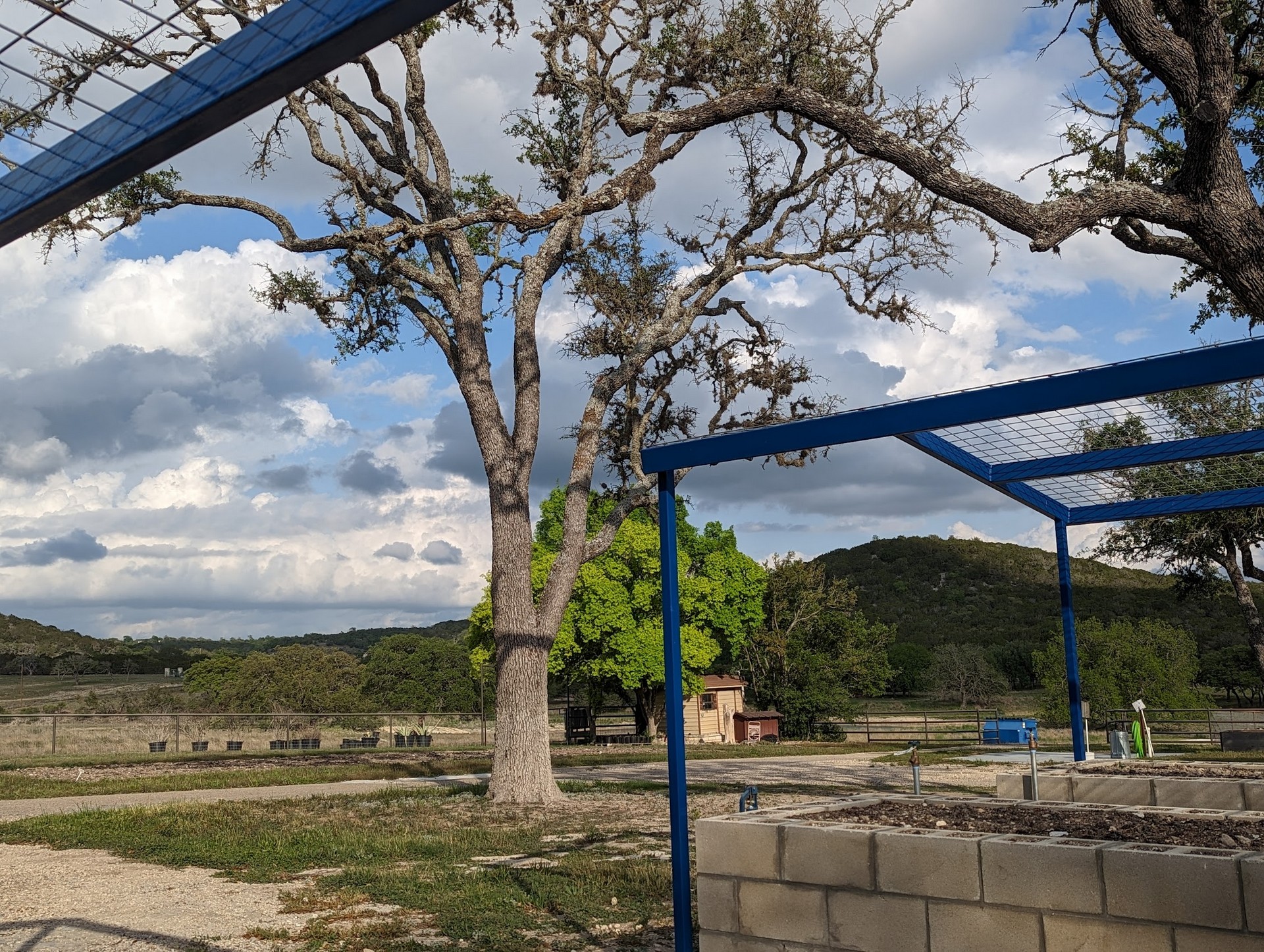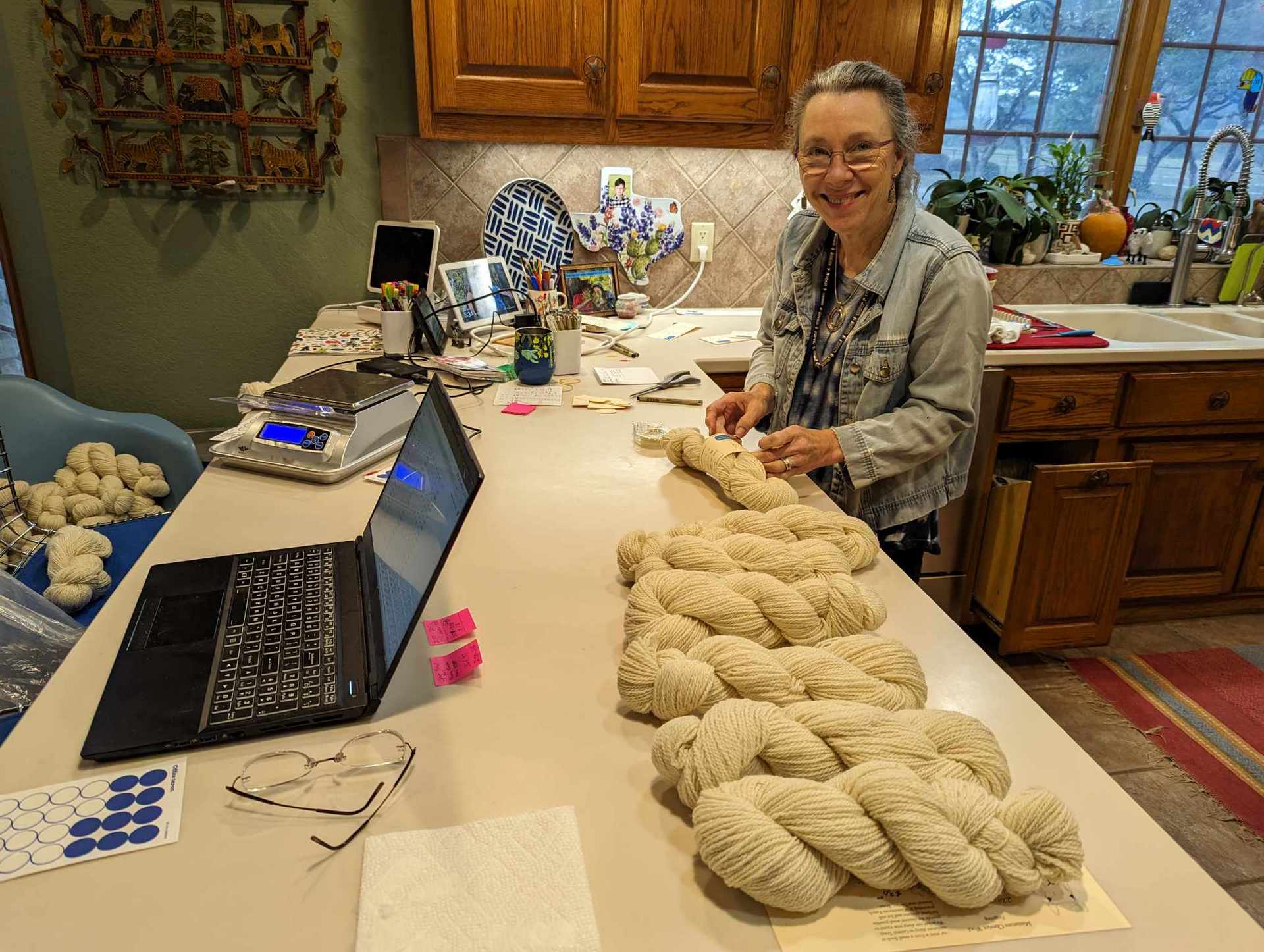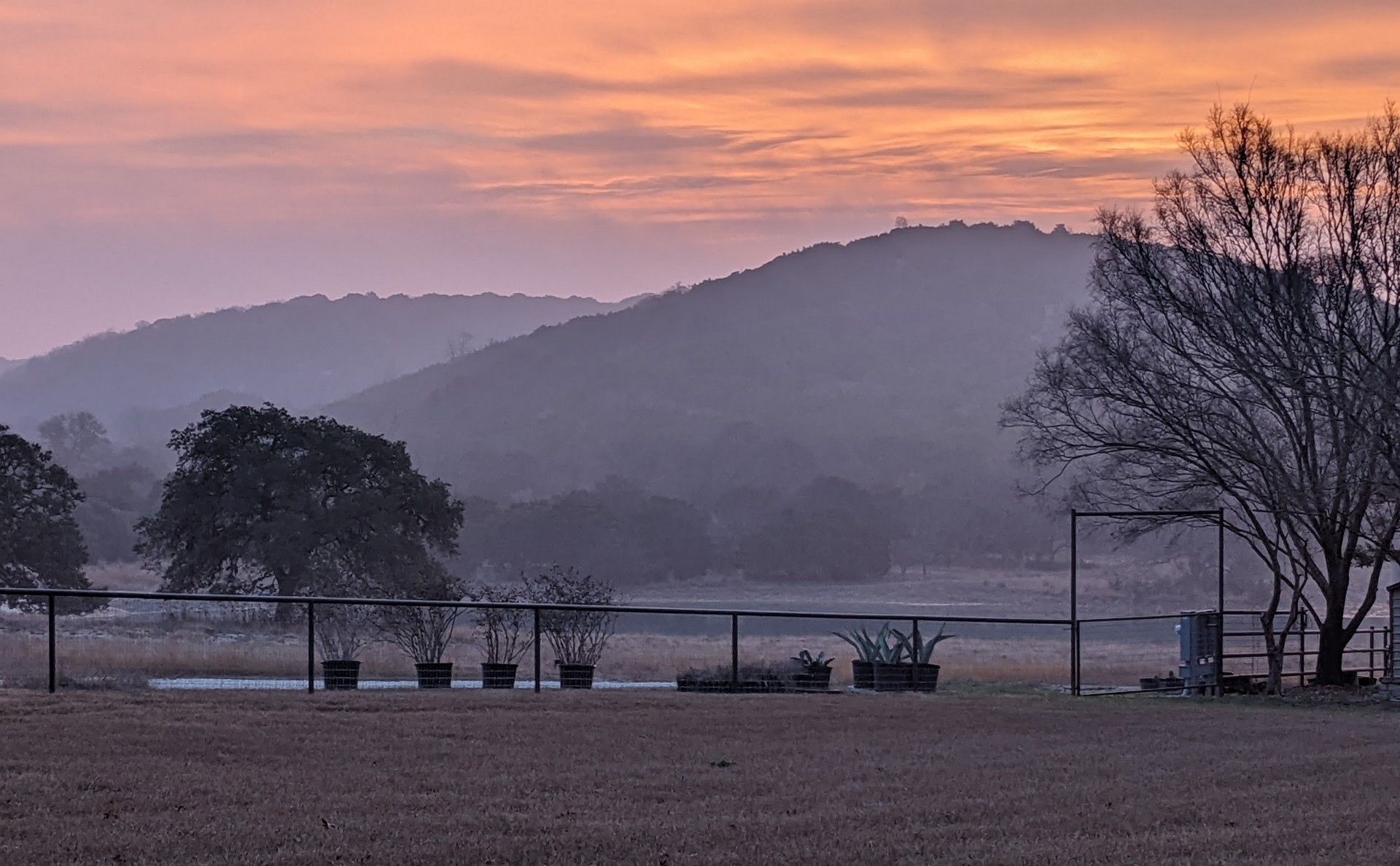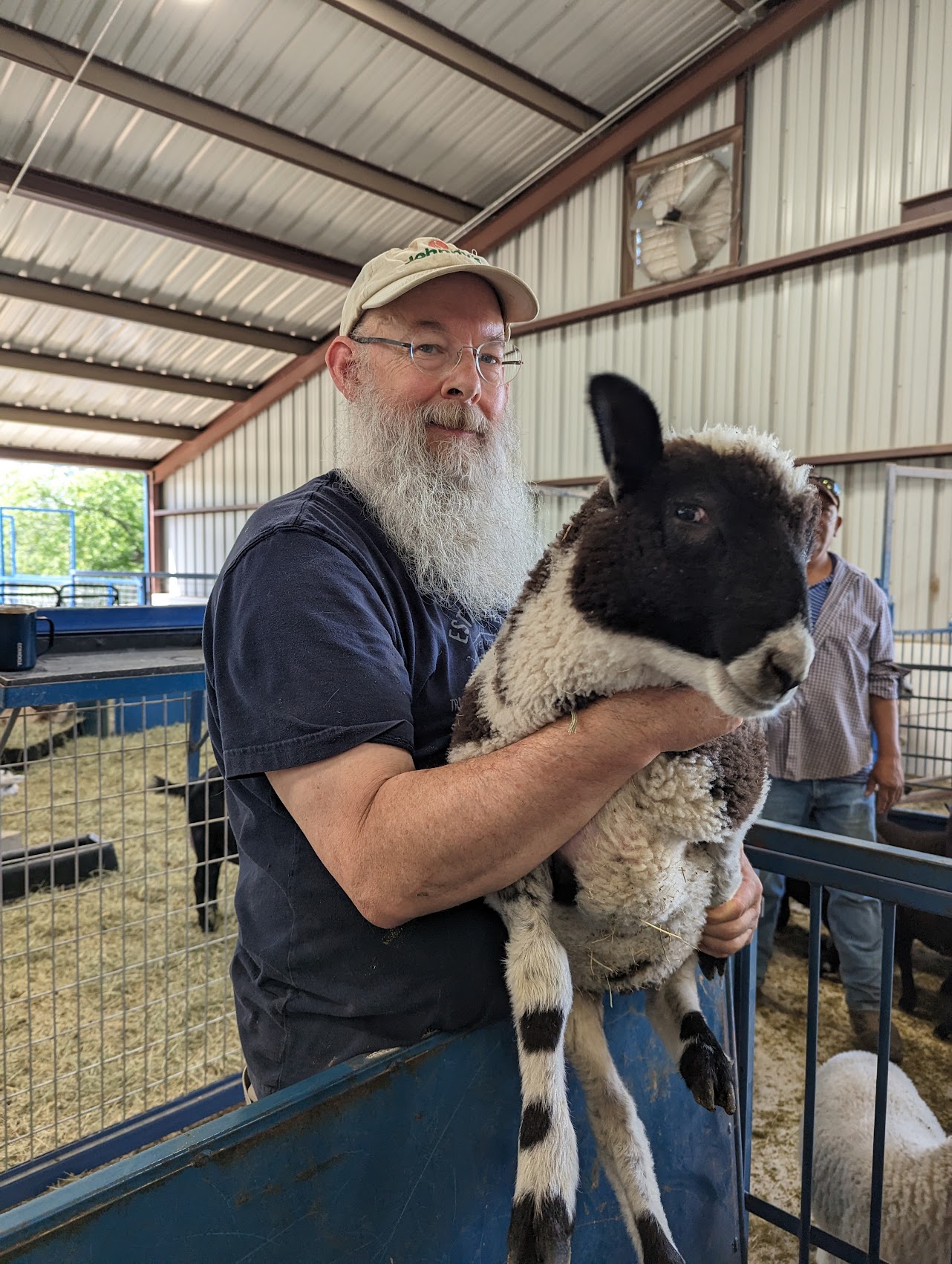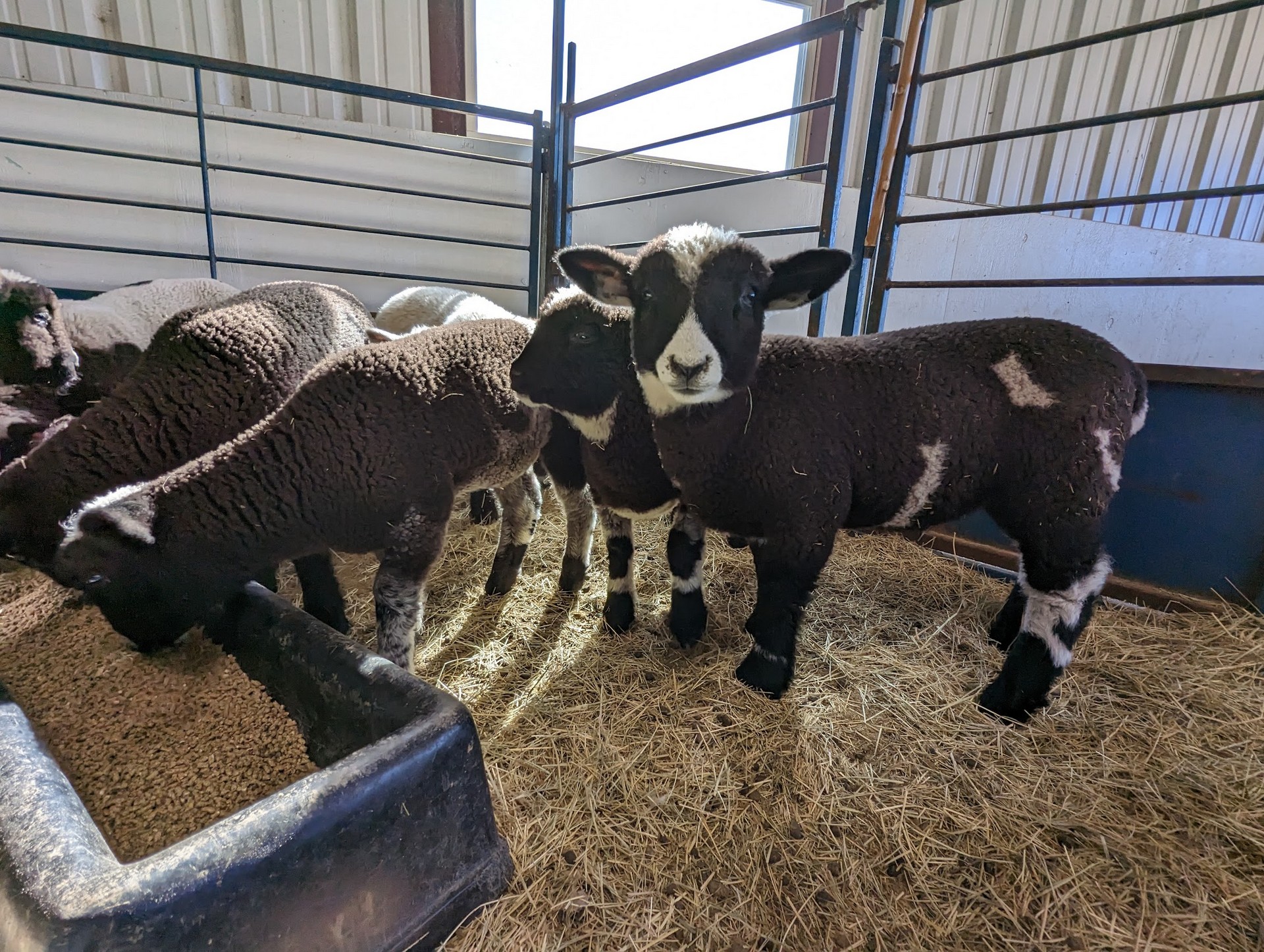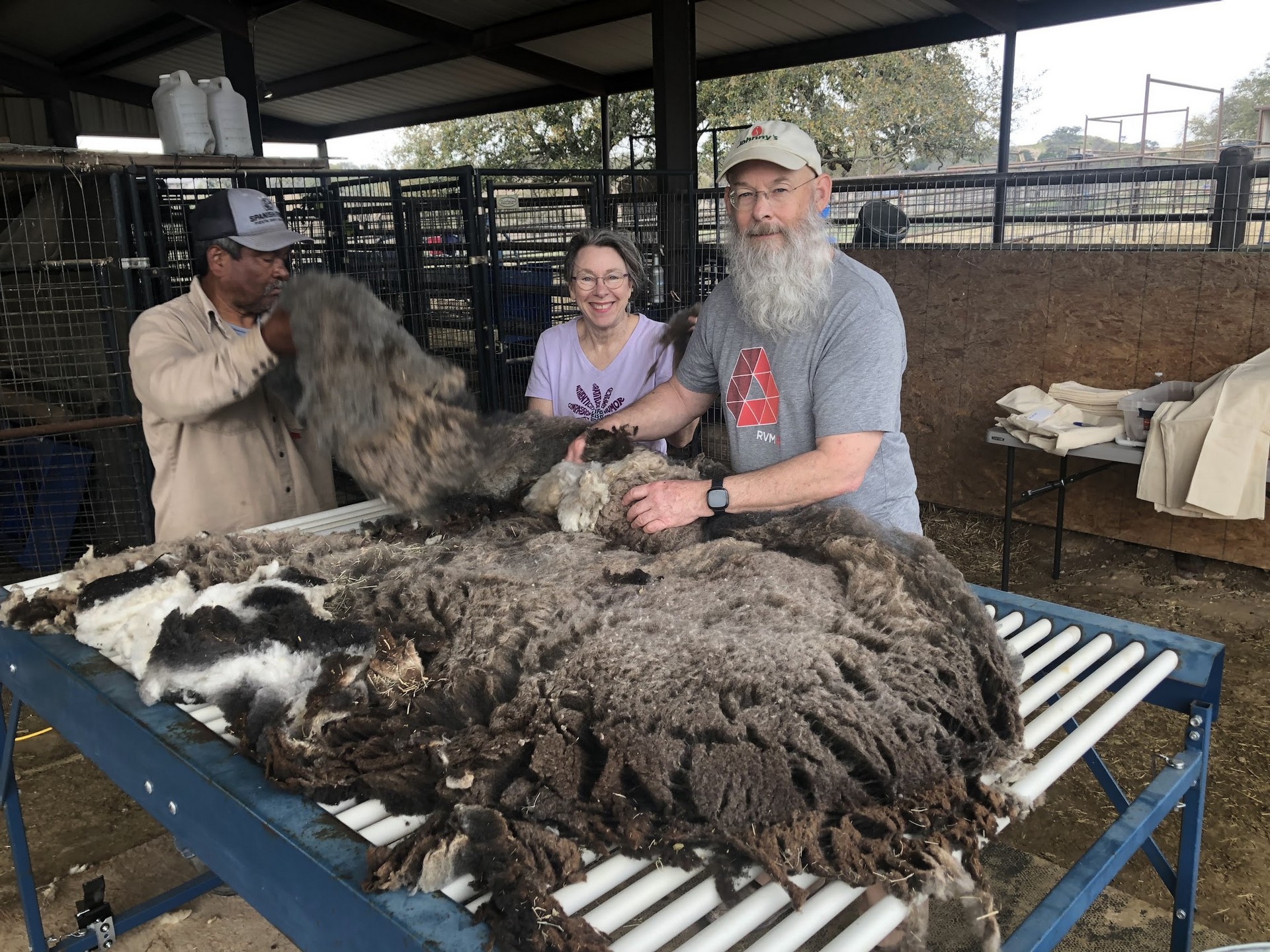Harlequin Sheep Society & Registry
Breeder Spotlight
January 2024
Orchid Hill Farms
Located in Kerrville, TX Orchid Hill Farms is owned and operated by Don and Mary Thorp.
About Orchid Hill Farms
The Land
Our main farm is 100 acres, but only about 10 to 20 acres will ever be used for livestock. The rest is for restoring and protection of the native ecosystem. Given our climate and this extreme drought, we are always going to have to primarily use hay year round with some vegetation now and then from the pastures especially until we can build out the rest of them. We've recently decided that I can use non-invasive plants to restore the soil in the pastures adding more variety to their diet eventually,
without causing a problem. The primary invasive that we have on this property is Coastal Bermuda, and we're always fighting it.
![]()
Our fence design on this property is a series of separate pastures that have at least a 20' border outside the fence for wildlife movement. Our property is one of twelve ranches around us that has a Wildlife exemption where the focus is White Tailed Deer which we took advantage of in our design. The entire property is fenced, but we do not rely on it for small livestock, as it's 5x5 cattle wire with 2 strands of barbed wire on the top. We currently have 2 fenced pastures and plan on creating at least 2 to 4 more.
Fencing near the barn is 2" pipe. We use T-posts for our pastures. All fencing uses 4'2x4 no-climb, a hot wire at the top of each fence to deter predators, as well as a 3' 3x3 wire along the ground on the outside of the fence to discourage
We moved the farm in 2019 from Copper Canyon, Texas to Kerrville, TX for two reasons. One, we needed more space for our growing collection of animals. Two, even though our property was zoned agricultural in Copper Canyon, people kept moving into the area thinking farms are always silent. The writing was on the wall, that focusing on building a working/educational farm in the area was out of the question.
It became crystal clear we had to move after having to hire a criminal attorney to deal with a dog barking complaint from a family over a quarter of a mile away, especially when our next door neighbors didn't have any problems.
![]()
![]()
digging. The hot wire also allows us to clip in the temporary fencing anywhere in the pasture so we can subdivide it for rotational grazing as needed. We have been working on the infrastructure since we moved in 2019, we're excited to be close to fully operational in 2024.
Managing the Workload and a Challenge
I primarily take care of all the animals and gardening, while Mary focuses on her birds and the herbs/perennials. We obviously help each other as needed especially during lambing season and often do chores together, which is a nice bonus. We also have a farm manager, Jimmy, who is primarily focused on building out our infrastructure and he has a couple of guys that work for him. Additionally, his wife Deborah, helps out with all sorts of things around the farm and for both families. They moved with us when we relocated to Kerrville.
Our biggest struggle this year has been having water available on the property. When we moved in, there were two wells on the property, both of them went dry this year. Thankfully we'd gotten on the schedule to drill a third well which was completed in November. After the new well was in, the second well, which we had been using to manually fill the storage tank for the property, dried up. Thankfully, we only had to have one load of water delivered before we could get a temporary solution working with the new well. We have pipe running on top of the ground to each of the old well heads for water distribution. We manually turn on power to the well and flip valves to move water where we need it. Given that it's above ground, we have valves that allow us to drain it during cold weather as needed. Once our new well house is built, we'll be back to automated water delivery, but that's going to at least be 2 to 3 months out.
It does help the daily step count though!
What made you interested
in raising sheep?
The farm's origin story came about while I was on a business trip to Baltimore and I asked Mary to go to TSC to get dog food. They kept her waiting by the service desk too long during chick and duckling season. When I walked into the house after my trip, the first thing I heard was the peep, peep, peep, of baby birds and I knew that farming had found me again, which I am grateful for every day.
Given that we're not getting any younger, we focused on smaller animals when building out the farm including chickens, ducks, geese, guinea, sheep, goats, and our
Icelandic sheepdogs. Our main interest in sheep was for the wool in the beginning as both Mary and her daughter Madi enjoy working with fiber.
The farm's origin story came about while I was on a business trip to Baltimore and I asked Mary to go to TSC to get dog food. They kept her waiting by the service desk too long during chick and duckling season.
![]()
When I walked into the house after my trip, the first thing I heard was the peep, peep, peep, of baby birds and I knew that farming had found me again, which I am grateful for every day.
Why did you choose Harlequins?
Mary was excited when she discovered Miniature Harlequin Sheep as they were small and colorful and we could use the fiber. We breed and select for color in almost all of our livestock. Given those requirements, we reached out to Jill Christopher as she was the closest breeder to us at the time and started building our flock. I was excited as the breed was and is fairly rare and we could be a part of a smaller group of shepherds and work to improve and foster these wonderful sheep.
Tell Us About Your Flock
In addition to Harlequins, we also raise Miniature Cheviot to cross with our Harlequins to create Harliots. The primary driver for the Harliots is experimenting to create finer wool and also take advantage of their clean faces and legs. We may also use the Harliots as market lambs especially as we're experimenting.
Overall, we have 51 Sheep, 46 goats, 4 Anatolian Shepherd Dogs, 2 Great Pyrenees, 3 Icelandic Sheep Dogs, 2 Barn Cats, 3 pet dogs, and no idea how many chickens,
ducks, and geese.
On the Harlequin side, or focus is wool and breeding stock. We have 32 sheep:
![]()
Ewes (22)
2 - 7 year old 1 - 4 year old
6 - 6 year old 1 - 2 year old
1 - 4 year old 11 - 2023 lambs
Rams (7)
1 - 4 year old
1 - 3 year old
2 - 2 year old
1 - 1 year old
2 - 2023 lambs (Available)
Wethers (3)
3 - 7 year old
What's the most rewarding aspect of raising Harlequins?
For me it's ease of handling and their calm demeanor, at least after they're a year old or so :) Lambs are just crazy most days but they are so much fun! Seriously though, I've always gravitated to startups my entire life. Therefore, being part of a small group of breeders who care about shaping the future of this truly American breed so that
when we close the registry, we've created amazing genetics that will delight people for generations.
What's the most rewarding aspect of raising Harlequins?
For me it's ease of handling and their calm demeanor, at least after they're a year old or so :) Lambs are just crazy most days but they are so much fun! Seriously though, I've always gravitated to startups my entire life. Therefore, being part of a small group of breeders who care about shaping the future of this truly American breed so that
when we close the registry, we've created amazing genetics that will delight people for generations.
How Do You Market Your Lambs and Wool?
Even though we've been raising sheep for over 7 years now, 2023 was our first year of lambing.
We had sufficient temporary space in what is now the machine shed and pens attached to it for the adults, but lambs would have overwhelmed it.
Our website, Facebook, and word of mouth were our outlets this year. Next year I may add
Instagram and/or YouTube to the line up. I'll probably not use TikTok.
While we're starting to ramp up our marketing for our wool, we have had some success in the past inviting fiber artists and students to our shearing day. Most of them wanted the fleece raw but skirted and were excited to choose the fleece as soon as it hit the skirting table. 2023 was the first year we have wool products to market so we're working on getting our yarn and roving out there. We attended the Fleece and Fiber event here in Kerrville in conjunction with Winterstrom Ranch, who processes our wool. It wasn't a great turn out
this year, but we did get to meet and talk with others in the fibercommunity. We also sent out some yarn to knitters and roving to spinners to get their input on our colors and what they thought about working with the wool. Everyone was pretty enthusiastic about the fiber but they really loved the natural chocolates and browns. We weren't originally planning on having a booth at many shows in 2024, but we're starting to consider several to also help get our name and products out there for fiber artists, spinners, and knitters.
![]()
What's the craziest thing a potential owner has ever done or said?
I don't have a good story on this related to sheep, yet, and having a good application process to help us choose the right families was critical in choosing well. That said, we have lots of stories of crazy people wanting our Iceland Sheepdog puppies.
Our application for puppies covers more than our livestock application, which helped, but the crazy still came in. We require new families to pick up their puppies in person.
We've had people fly in or drive in to get here, the farthest so far has been from
Alaska and that puppy has the best life. There was a couple out of Houston that couldn't be bothered to visit in advance to meet the puppies, they also demanded that we hold two puppies for them, and were not going to make a trip unless they could take the dog home at that time. These demands started when the puppies were 4 weeks old. After a few weeks of this, we decided it would not be a safe home for our babies. When I told the wife that we were not going to allow them to have a puppy, the rails really came off and the wife started screaming at me in email and SMS.
It was a great decision.
What have you learned about having livestock that surprised you?
I think the biggest thing I've learned about small ruminants is how robust and yet
fragile they can be. With smaller animals, especially miniature lambs, you have to
watch them closely from birth to maybe 6 months as they can go from racing around
the barn to not moving in a very short period of time.
What’s one thing you'd want a new shepherd
to know when they start out?
Buy your stock from a farm that is willing to help you in your journey of becoming a shepherd, don't be afraid to use them to learn. We all start somewhere and experienced shepherds will help you learn. We have such a great community of shepherds raising Harlequins, it'd be a shame if the new shepherd didn't take advantage of our community.
![]()
What has raising sheep
taught you?
If you can manage sheep, you can use that skill to be a better manager/leader of people. Add goats to the mix and you can manage almost anything.
Caring for the sheep day in and day out, knowing each ones habits, faults, teaching them how to be a good flock, really improved my empathy and observation skills and helped me be a more effective software engineering leader.
visit
orchid hill farms
